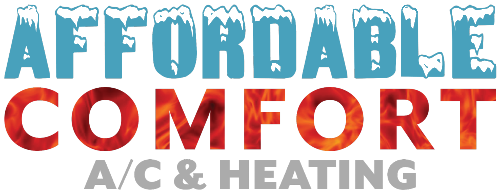Filter Change and Its Importance for HVAC Performance
A clogged air filter can make HVAC systems noisier by restricting airflow, disrupting quiet homes. Regular filter replacements maintain efficiency and reduce noise levels for a more comfortable environment.
Maintaining an HVAC system is crucial for optimal performance, energy efficiency, and indoor air quality. One of the most essential maintenance tasks is changing the air filters regularly. Air filters are vital, trapping dust, allergens, and other contaminants, preventing them from circulating through the system and into living spaces. Here’s why regular filter changes are so important for HVAC performance.
Improving Air Quality
Air filters capture dust, pollen, pet dander, and mold spores. Over time, they accumulate in the filter, reducing its effectiveness. A clogged filter can no longer trap contaminants efficiently, allowing them to recirculate in the indoor air. The trapped contaminants can lead to poor air quality, which may cause or exacerbate respiratory issues, allergies, and other health problems.
Regularly replacing the air filter helps maintain cleaner air, creating a healthier living environment. More frequent filter changes may be necessary for households with pets, smokers, or individuals with allergies to maintain optimal air quality.
Enhancing HVAC Efficiency
A clean air filter enables an HVAC system to operate efficiently. However, when a filter is clogged, it restricts airflow, forcing the system to work harder to keep the space at the desired temperature. The additional stress leads to higher energy consumption, increasing utility costs. In contrast, a clean filter promotes smooth airflow, reducing the system’s workload and enhancing efficiency.
Regular filter changes can result in significant energy savings. According to the U.S. Department of Energy, replacing a dirty filter with a clean one can lower an air conditioner’s energy consumption by 5% to 15%. Clean air filters save money and reduce the HVAC system’s environmental impact.
Prolonging System Lifespan
An HVAC system with a clean filter operates more smoothly and with less strain. Over time, the additional stress caused by a clogged filter can lead to wear and tear on system components, potentially causing breakdowns and the need for costly repairs. Regular filter changes help prevent such issues, contributing to a longer lifespan for the HVAC system.
A well-maintained system is less likely to experience frequent malfunctions, reducing the likelihood of inconvenient and expensive emergency repairs. By investing in regular filter replacements, homeowners can protect their HVAC systems and extend their operational life.
Maintaining Optimal Performance
HVAC systems maintain indoor conditions by regulating temperature and humidity by design. A clogged air filter can hinder this performance, causing uneven heating or cooling, longer runtime cycles, and inconsistent temperatures throughout the home. They can lead to discomfort and dissatisfaction with the system’s performance.
Changing the air filter helps maintain consistent airflow and optimal system performance. The HVAC system can effectively maintain the desired indoor temperature and humidity, providing a comfortable living environment.
Reducing System Noise
A clogged air filter can make the HVAC system noisier than usual. The restricted airflow forces the system to work harder, increasing noise levels. The noise can be bothersome in residential settings where a quiet environment is preferred.
Regularly replacing the air filter helps maintain smooth and quiet operation. By reducing the strain on the system, it operates more efficiently and with less noise, contributing to a more peaceful and comfortable home.
Preventing Frozen Coils
In cooling systems, a clogged air filter can cause the evaporator coils to freeze. Freezing happens because restricted airflow prevents warm air from reaching the coils, causing the refrigerant inside to drop below freezing. Frozen coils can lead to system malfunctions and inefficient cooling.
Changing the air filter helps prevent this issue by maintaining proper airflow. The HVAC system functions correctly, avoiding the problems associated with frozen coils and providing efficient cooling performance.
Easy and Cost-Effective Maintenance
One advantage of regular air filter changes is that they are simple and cost-effective maintenance tasks. Air filters are relatively inexpensive, and replacing one is simple. Most homeowners can change the filter themselves without the need for professional assistance. However, for those who prefer, professional HVAC technicians can include filter changes as part of routine maintenance visits.
The time and money spent on changing the air filter are well worth the benefits in terms of improved air quality, energy efficiency, system performance, and longevity. Routine filter changes are a small investment that significantly pays off over time.
Regularly changing air filters is an essential step for maintaining a healthy, efficient, long-lasting HVAC system. Clean air filters play a critical role in the system’s overall functionality by improving air quality, enhancing system efficiency, prolonging lifespan, maintaining optimal performance, reducing noise, and preventing frozen coils. Homeowners should prioritize regular filter changes as part of their HVAC maintenance routine to enjoy these benefits and create a comfortable living environment. Consulting with HVAC professionals for guidance on the appropriate filter type and replacement schedule can further optimize system performance.
Trust locally-owned and operated Affordable Comfort A/C and Heating for HVAC preventative maintenance and thermostat services. Call 602-574-1205 to schedule a consultation.

